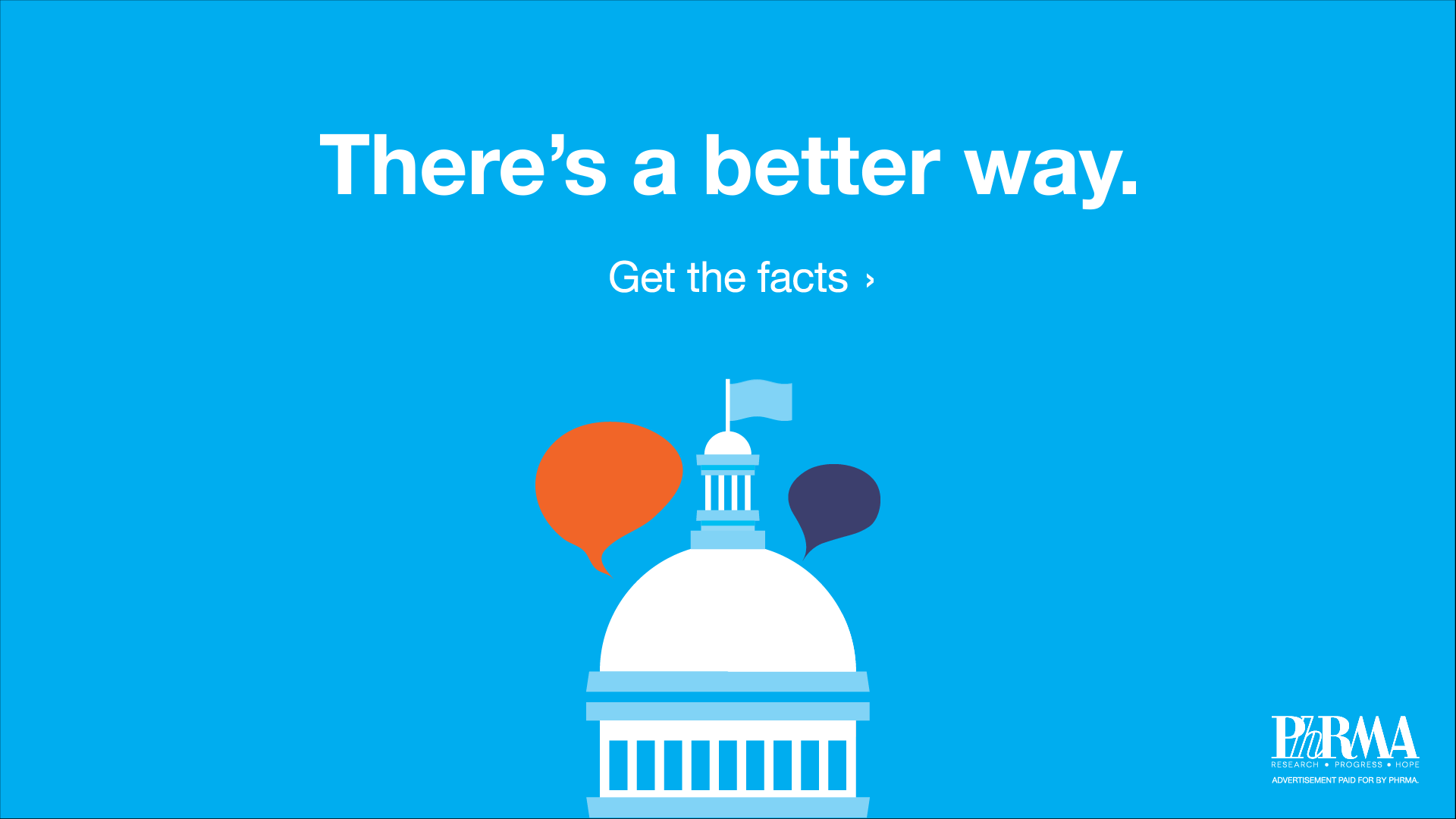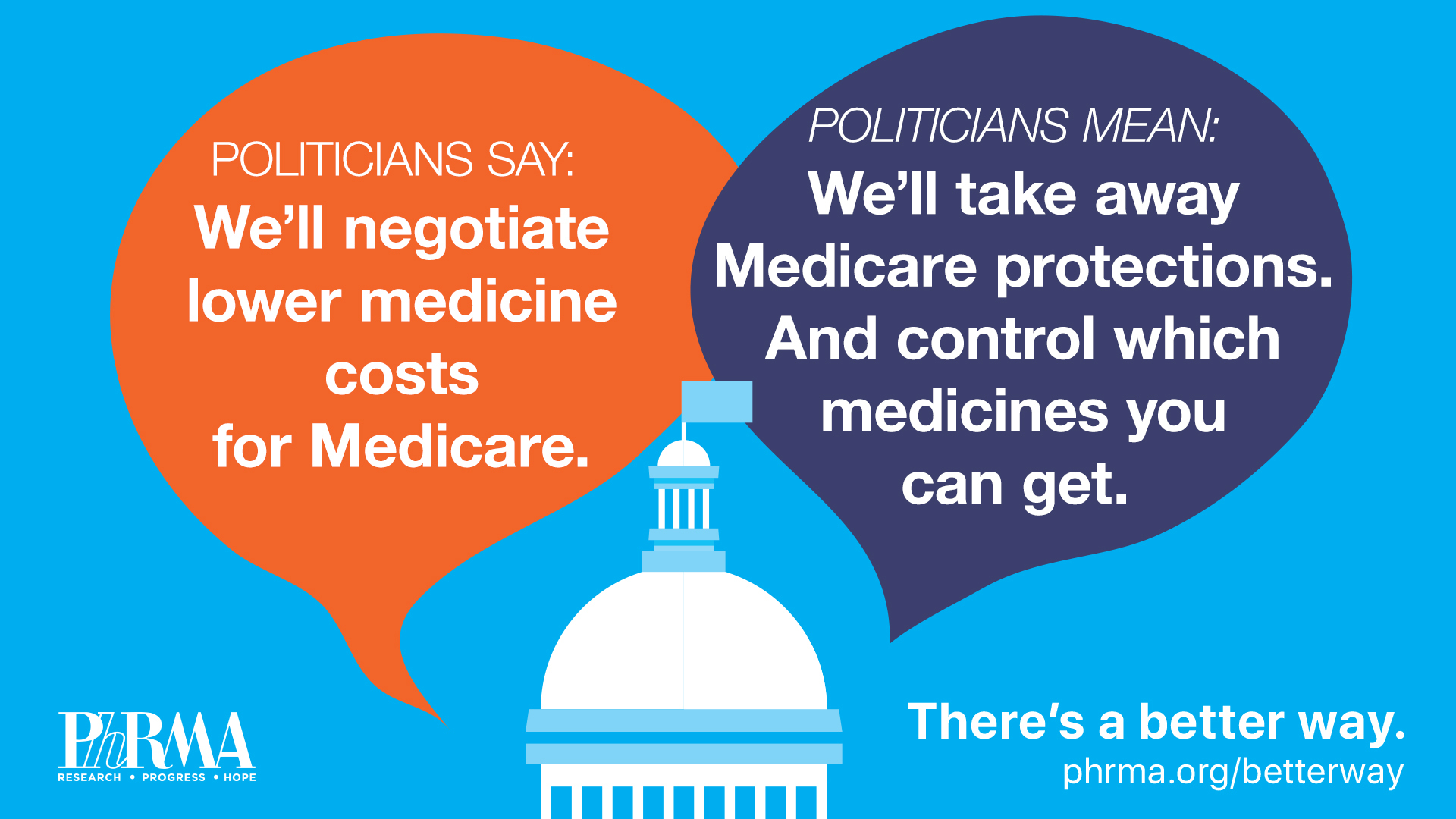Plus: A vaccine "wake up call" | Wednesday, August 11, 2021
| | | | | | | Presented By PhRMA | | | | Axios Vitals | | By Tina Reed ·Aug 11, 2021 | | Good morning, Vitals readers. Today's newsletter is 902 words, or a 3-minute read. Situational awareness: Missouri's voter-approved Medicaid expansion must be implemented without any more delay, a court ruled Tuesday. | | | | | | 1 big thing: Medicare's costly evolution |  Data: Medicare Trustees reports; Chart: Will Chase/Axios Medicare's open enrollment will kick off in two months, leading to the health insurance industry's annual marketing blitz that entices seniors with Medicare Advantage plans that tout capped out-of-pocket costs, vision and dental benefits, and fitness classes, Axios' Bob Herman writes. Why it matters: It's increasingly likely a majority of all Medicare enrollees will be in private Medicare Advantage plans in a few years, despite the program's longstanding problems. The big picture: MA plans coordinate care for people within a more narrow network of doctors and hospitals, but promises of saving taxpayer dollars have not panned out. - The federal government paid almost $350 billion to MA insurers this year, a 10% increase from 2020. Every year since 2015, annual spending growth on MA plans has outpaced annual enrollment growth.
- "[N]o iteration of private plan contracting has yielded net aggregate savings for the Medicare program," the Medicare Payment Advisory Commission said in its June report.
Between the lines: Spending on MA is rising quickly in large part due to several policies, but the most notable is "risk adjustment." - Numerous auditors, watchdogs and researchers have found insurers are overcharging the government by exaggerating how sick their members are. One of the nation's leading MA plans, Kaiser Permanente, is facing its own risk adjustment scandal.
- But unlike risk adjustment in the Affordable Care Act marketplaces, MA insurers get potentially unlimited funds to code as many diagnoses as possible.
- "It's like Pooh Bear sticking his paw in the honey pot," said one Medicare Advantage expert. "The honey pot is bottomless. [MA] risk adjustment always goes up."
The bottom line: Medicare Advantage is consuming more membership and more of the Medicare trust fund. Go deeper. |     | | | | | | 2. A vaccine "wake up call" |  | | | Illustration: Annelise Capossela/Axios | | | | A new preprint study that raises concerns about the mRNA vaccines' effectiveness against the Delta variant — particularly Pfizer's — has already grabbed the attention of top Biden administration officials, Axios' Caitlin Owens writes. What they're saying: The study found the Pfizer vaccine was only 42% effective against infection in July, when the Delta variant was dominant. - "If that's not a wakeup call, I don't know what is," a senior Biden official told Axios.
Why it matters: Although it has yet to be peer-reviewed, the study raises serious questions about both vaccines' long-term effectiveness, particularly Pfizer's. - It's unclear whether the results signify a reduction in effectiveness over time, a reduced effectiveness against Delta, or a combination of both.
Yes, but: There has been no data so far that has found either vaccine's protection against severe disease and death is significantly less against Delta, and the study found that there doesn't appear to be much of a difference in severe outcomes for breakthrough infections based on the vaccine. - And experts cautioned against rushing to conclusions.
- "This is the kind of surprising finding that needs confirmation before we should accept its validity," said Cornell virologist John Moore.
- In a statement, Pfizer said it and BioNTech "expect to be able to develop and produce a tailor-made vaccine against that variant in approximately 100 days after a decision to do so, subject to regulatory approval."
Share this story. |     | | | | | | 3. Most parents back school mask mandates |  Data: KFF COVID-19 Vaccine Monitor; Chart: Will Chase/Axios The majority of parents disagree with schools' mandating COVID vaccines for kids 12 and older, but they do support mask mandates among the unvaccinated, according to a KFF Vaccine Monitor poll released today. - 63% of parents said they thought students 12 and older and staff who hadn't gotten a shot should be required to wear masks in school compared to 36% who opposed the idea.
- But only 42% of parents felt comfortable with vaccine mandates, while 58% were against them.
Zoom out: More than 40% of parents of kids ages 12–17 said their kids had been vaccinated, up from 34% in June. Another 6% of those parents said they planned for their teen to get the vaccine right away. - Nearly a quarter (23%) said they want to "wait and see" how the vaccine works for others before getting their eligible child vaccinated.
- Nearly one in 10 said they would get their child a shot "only if their school requires it" and one in five parents said their child will "definitely not" get vaccinated.
|     | | | | | | A message from PhRMA | | People want choice and access to medicines in Medicare – not barriers | | |  | | | | In Washington, what politicians say and what they mean can be very different.
To save money, some politicians are willing to sacrifice access to medicines in Medicare. This could make it harder for seniors and those with a disability to get the medicines they need. There's a better way. | | | | | | 4. 📊 Data point |  Data: KFF COVID-19 Vaccine Monitor; Chart: Will Chase/Axios |     | | | | | | 5. HCA hospital hit with antitrust suit |  | | | Illustration: Lazaro Gamio/Axios | | | | A class-action lawsuit filed yesterday against HCA's health system in Western North Carolina — which was known until recently as Mission Health — lays out a textbook case against hospital consolidation and monopoly pricing power, Caitlin reports. Why it matters: Neither hospital monopolies nor antitrust lawsuits are anything new, but the new federal regulation requiring hospitals to post their prices — including negotiated rates — could make such lawsuits more common going forward. The lawsuit argues that patients in the hospital system's service area are charged higher rates and subsequently pay more in premiums than the rest of the state. - It alleges that HCA is able to use its monopoly power and anti-competitive negotiation tactics to obtain significantly higher prices.
- Hospitals have been slow to comply with the new price transparency rules, and the lawsuit alleges that HCA is among those that has "refused to fully comply."
What it says: "Were HCA to comply and reveal to consumers and regulators the true prices that it charges, the public would know that HCA/Mission's prices for key services are by far the highest in North Carolina," it alleges. Read more. |     | | | | | | 6. Photo du jour |  | | | A COVID-19 patient waits inside an ambulance in front of Dhaka Medical College Hospital for admission on Tuesday to get treatment during the coronavirus pandemic in Dhaka, Bangladesh. Photo: Mamunur Rashid/NurPhoto via Getty Images | | | | Less than 5% of the population of Bangladesh's 160 million people are fully vaccinated, and it has become one of the latest global hotspots for the virus. |     | | | | | | A message from PhRMA | | People want choice and access to medicines in Medicare – not barriers | | |  | | | | In Washington, what politicians say and what they mean can be very different.
To save money, some politicians are willing to sacrifice access to medicines in Medicare. This could make it harder for seniors and those with a disability to get the medicines they need. There's a better way. | | |  | | It'll help you deliver employee communications more effectively. | | | | | | Axios thanks our partners for supporting our newsletters. If you're interested in advertising, learn more here.
Sponsorship has no influence on editorial content. Axios, 3100 Clarendon Blvd, Suite 1300, Arlington VA 22201 | | | You received this email because you signed up for newsletters from Axios.
Change your preferences or unsubscribe here. | | | Was this email forwarded to you?
Sign up now to get Axios in your inbox. | | | | Follow Axios on social media:    | | | | | |











No comments:
Post a Comment